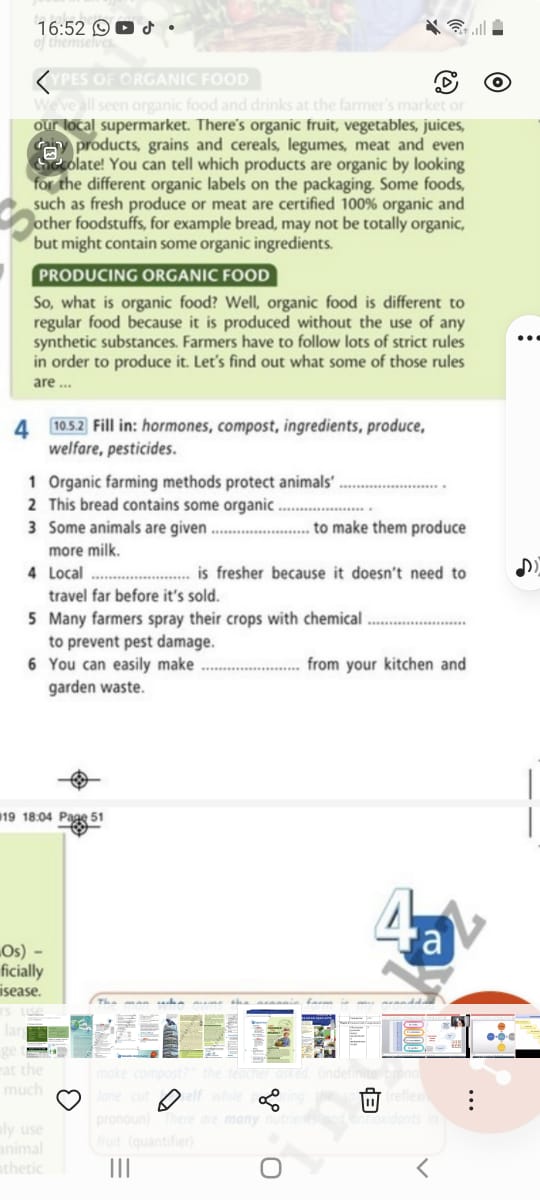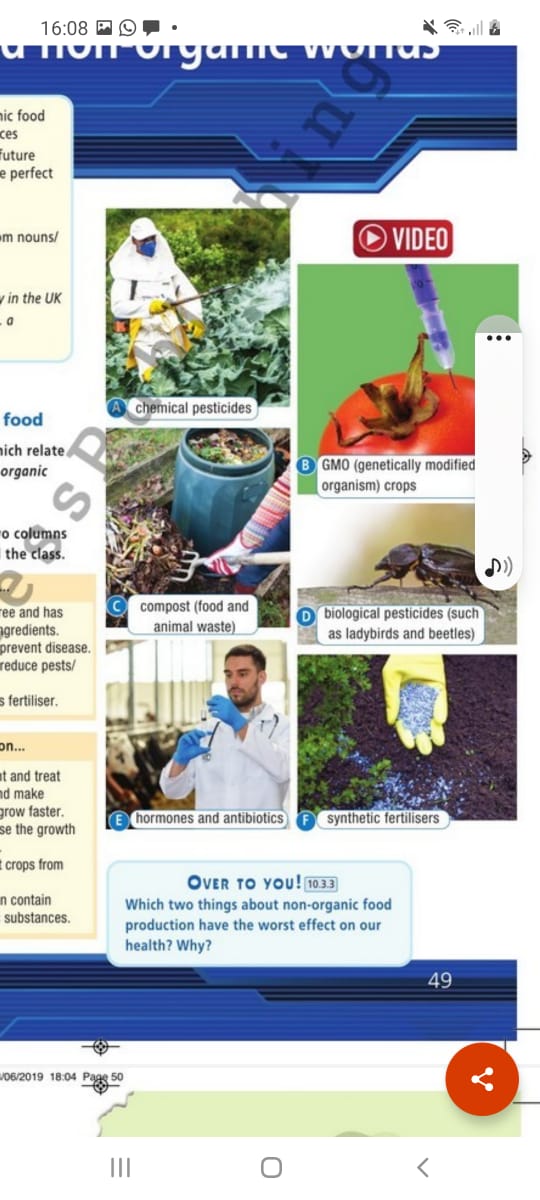|
Differentiation by
classification
(interests, mixed
ability)
Students will be divided into
2 groups. The names of groups are “organic
foods” and
“non- organic
food”
(G, I, f) Pre- reading.
“Think-Pair-Share”
Read
the text «Save environment and eat
organic»
and head.
Descriptor
read
the text
head
the text
F.A. Teacher’s oral assessment
(I, f) While-reading-writting
«A
gap in my
memory»
Fill in missed words by
meaning

Descriptor
fill in the gaps with given
nouns
F.A. «Quick
nod»
Post-reading
–listening.
“True/False”
Watch the video then mark the sentences as True
(T) or False (F) correct the false sentences.
Students skip to the article if they prefer
reading.
Ex 3.
-
People have recently started
eating organic food
-
Only items that are 100
organic label on them
-
Biological pesticides are not
as effective as chemical ones
-
On organic farms, compost is
used as a fertilizer
-
Synthetic hormones are used to
prevent disease in animals
-
Non –organic foods are higher
in antioxidants.
Descriptor:
- watch the video attentively
- mark the sentences as true or
false
F.A.
Self-assessment
Differentiation by
resources
Pre -speaking “Face to
face”
Identify aspects of organic and non-organic food
production
Organic –food Non-organic
food
Descriptor:
-
identify aspects of food
production
-
research information about food
production
-
disscuss about food production
F.A. Comment each other and give constructive
feedback
(G, I, f) While-speaking. “Favourite numbers”
Choose one of the number and answer the
question.
Questions:
-
How do Europeans and Americans differ on the
question of GMO food?
-
How are GMOs created ?
-
What are some of the arguments againts GMO
food?
-
Why do GM opponents argue againts the idea that
GMO
food will end world will end world
hunger?
-
How often do you organic food ?
-
How do non-organic farmingmethads have a negative
impact on the environment?
Descriptor
-
choose favourite number
-
answer the questions
F.A: Teacher’s oral assessment
Pre –speaking -writting
Prepeare a
poster
Work in group find out more
information about GMO food present it to the
class
Descriptor
complete poster
present their works
F.A: Peer assessment
|





















